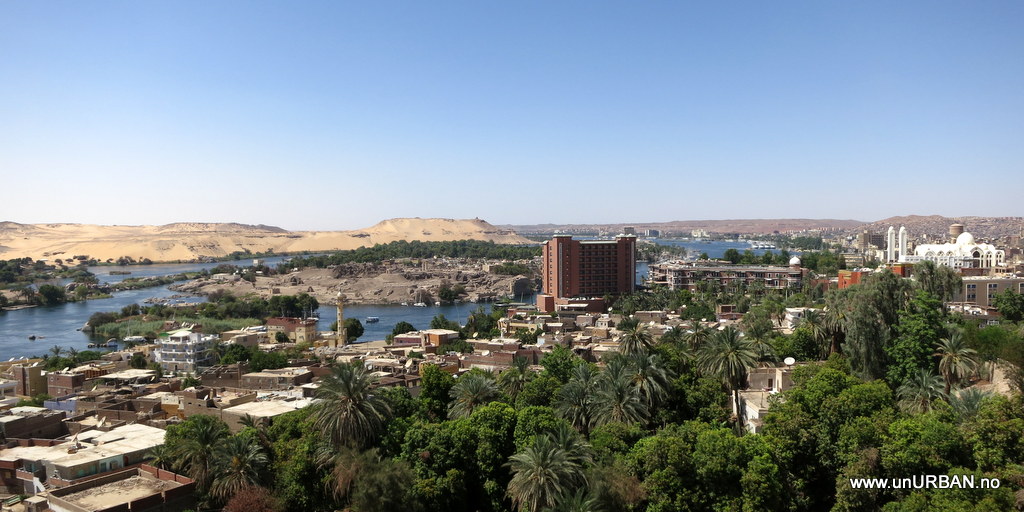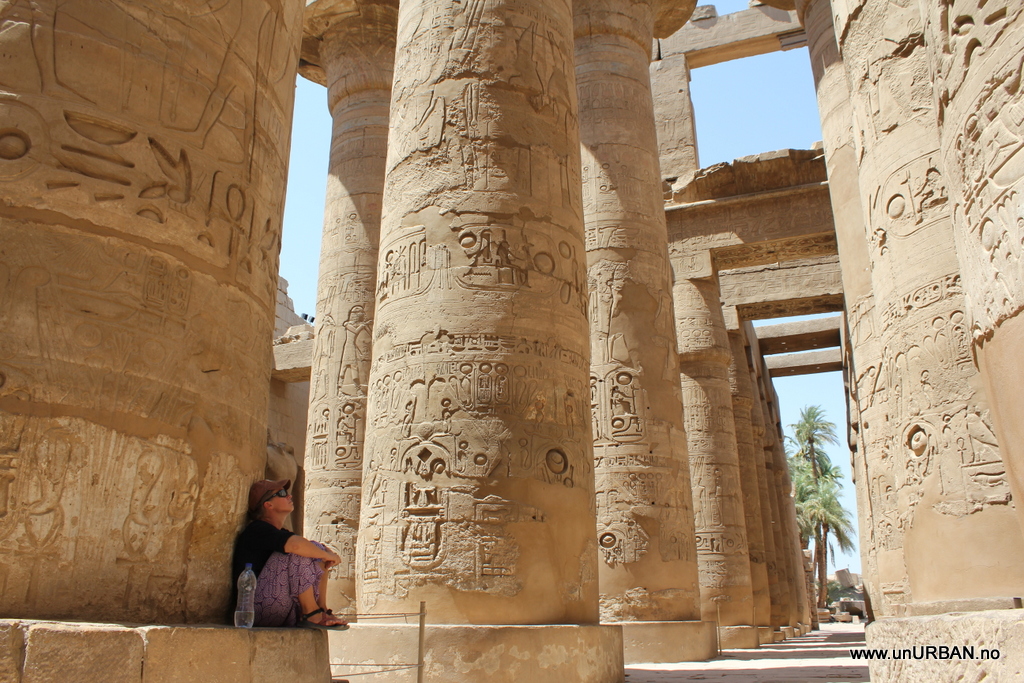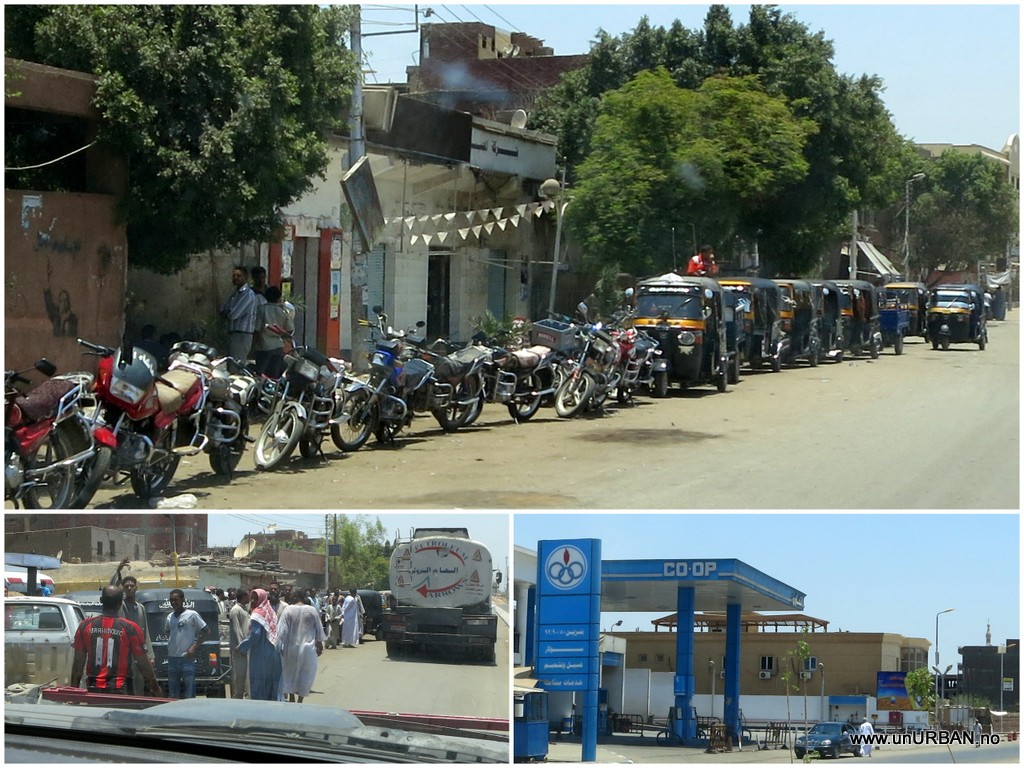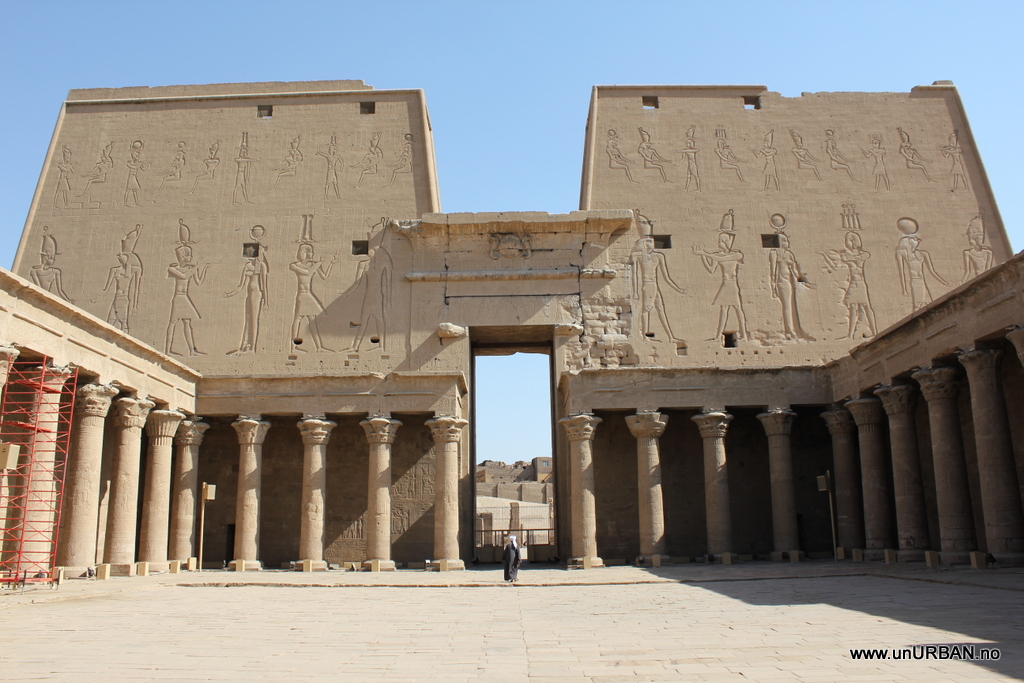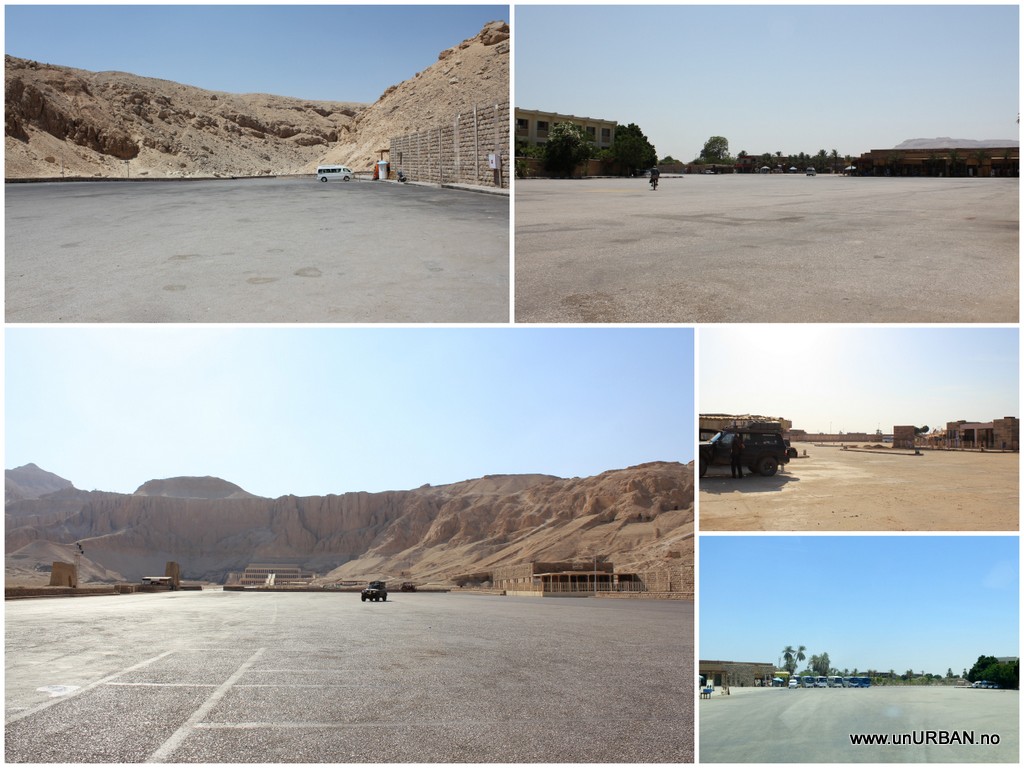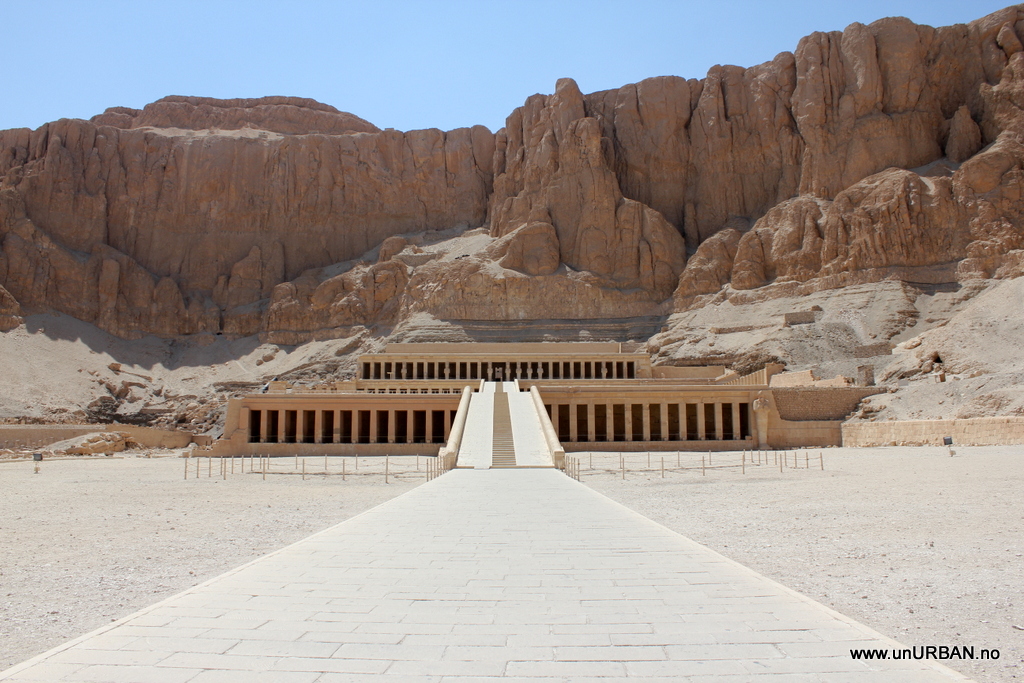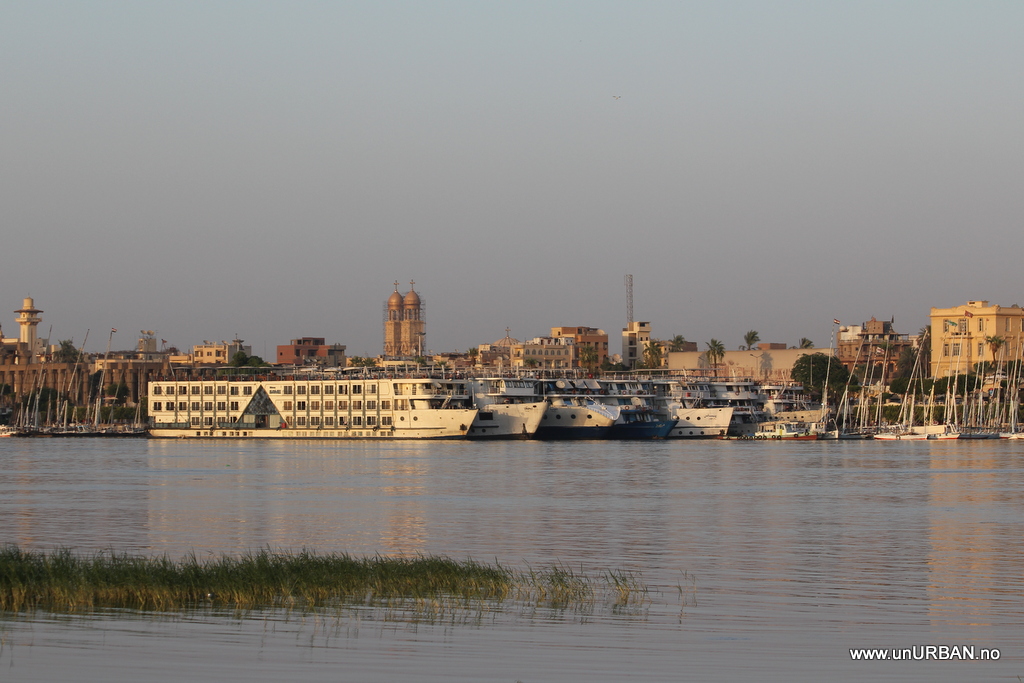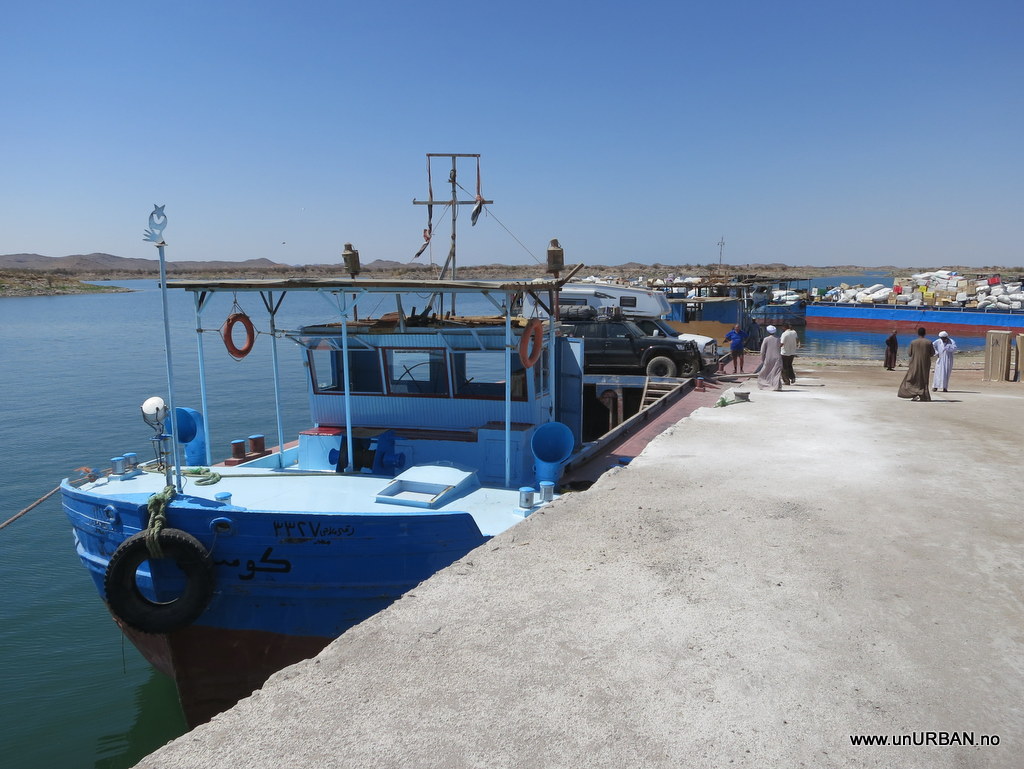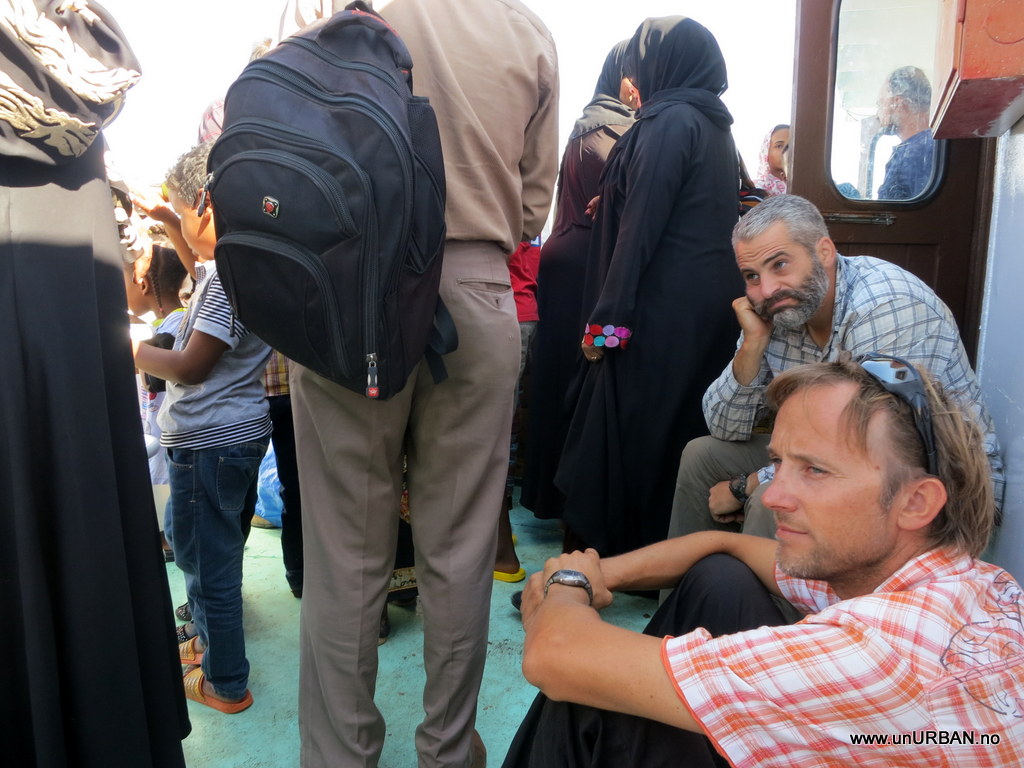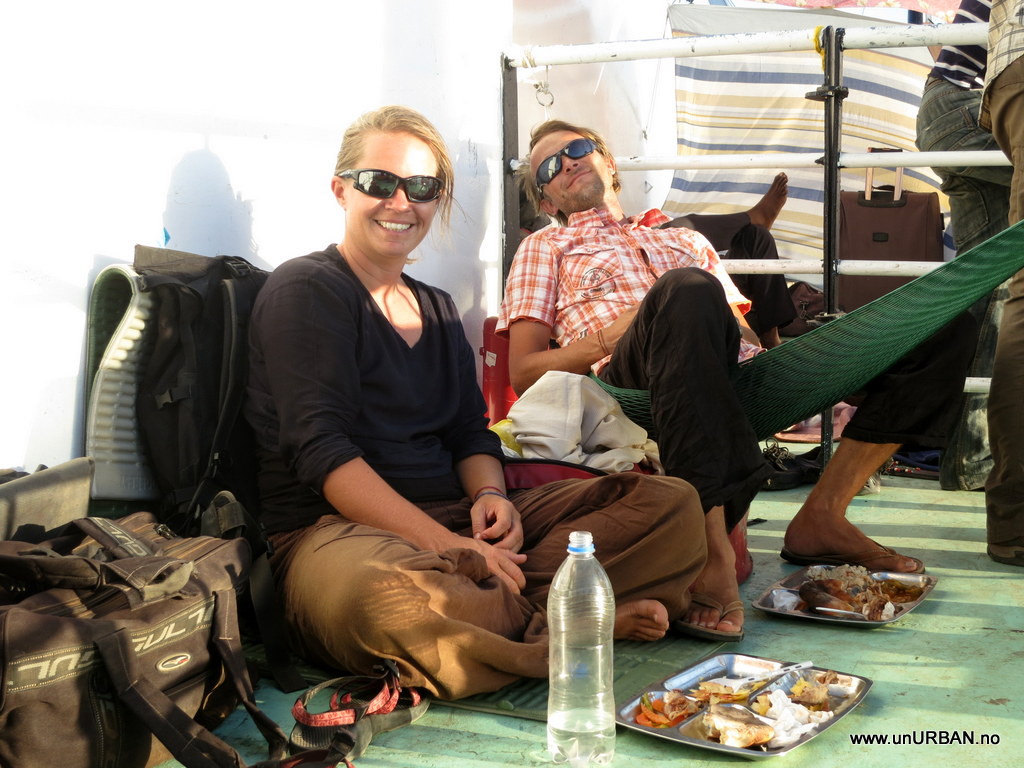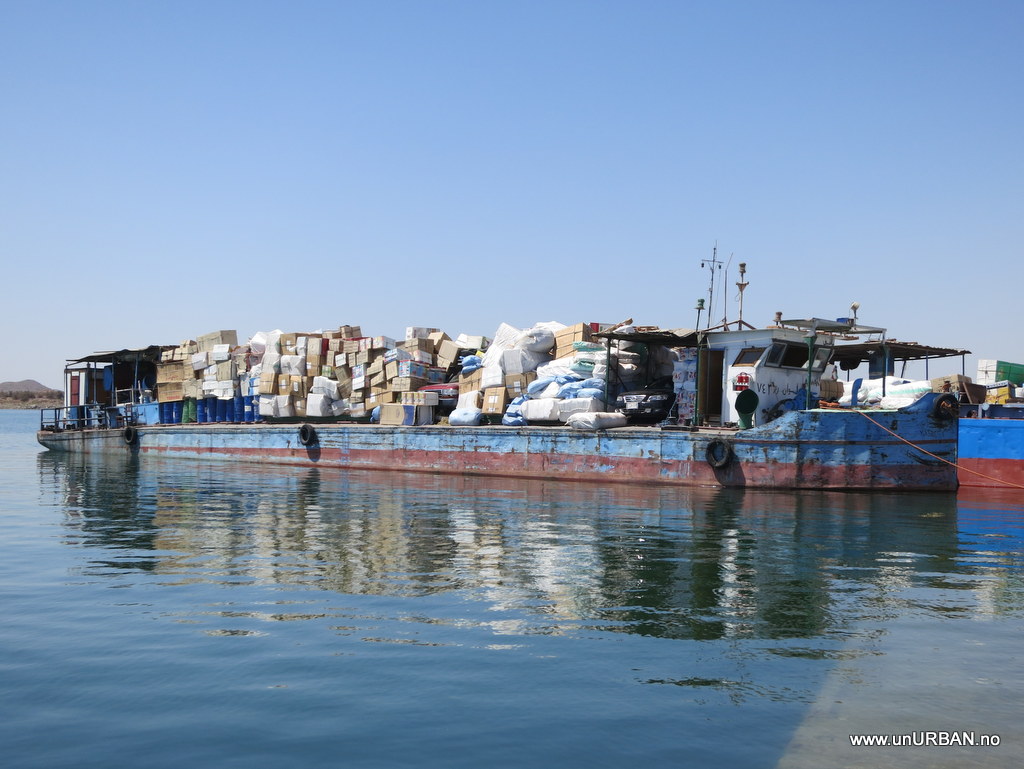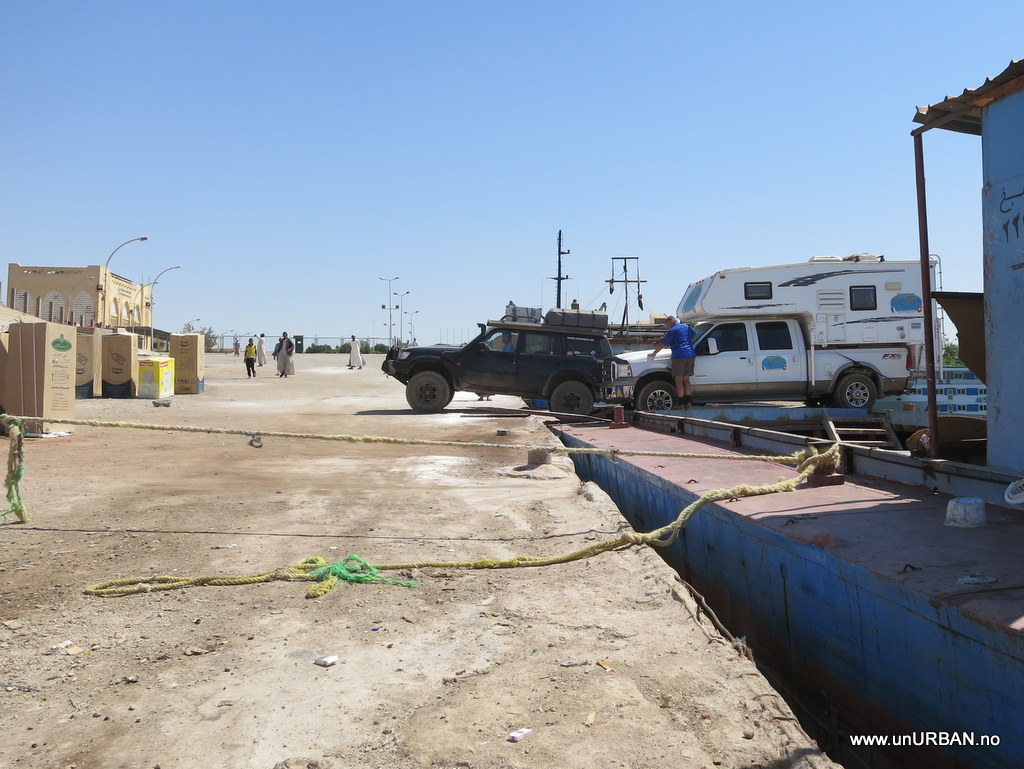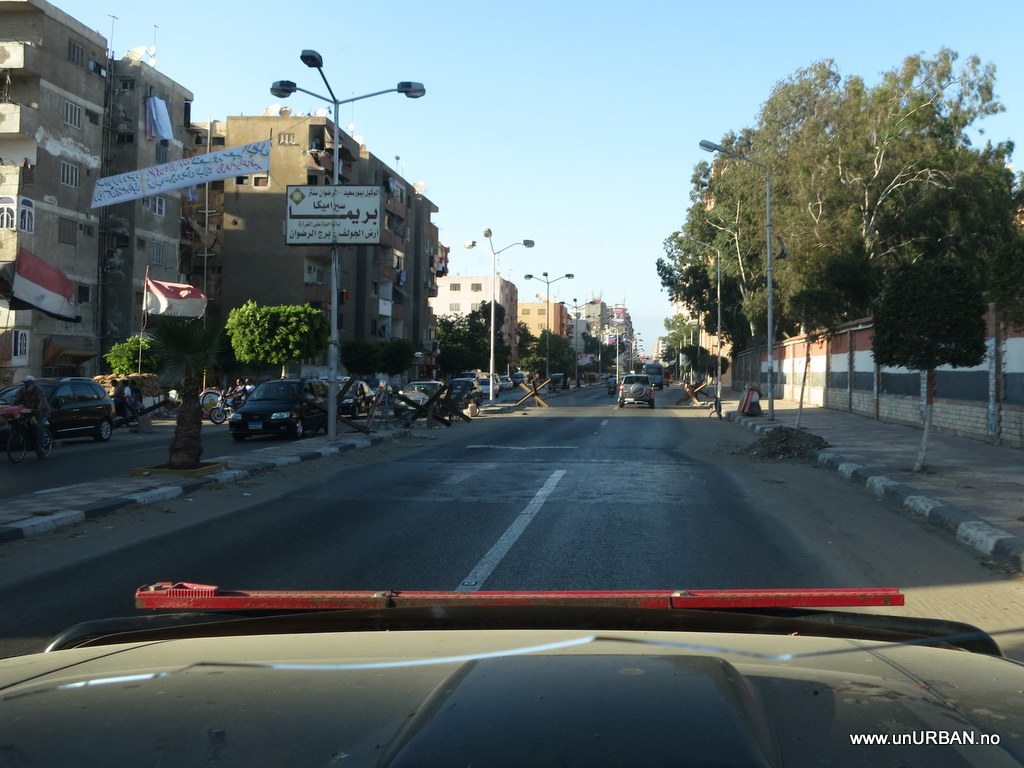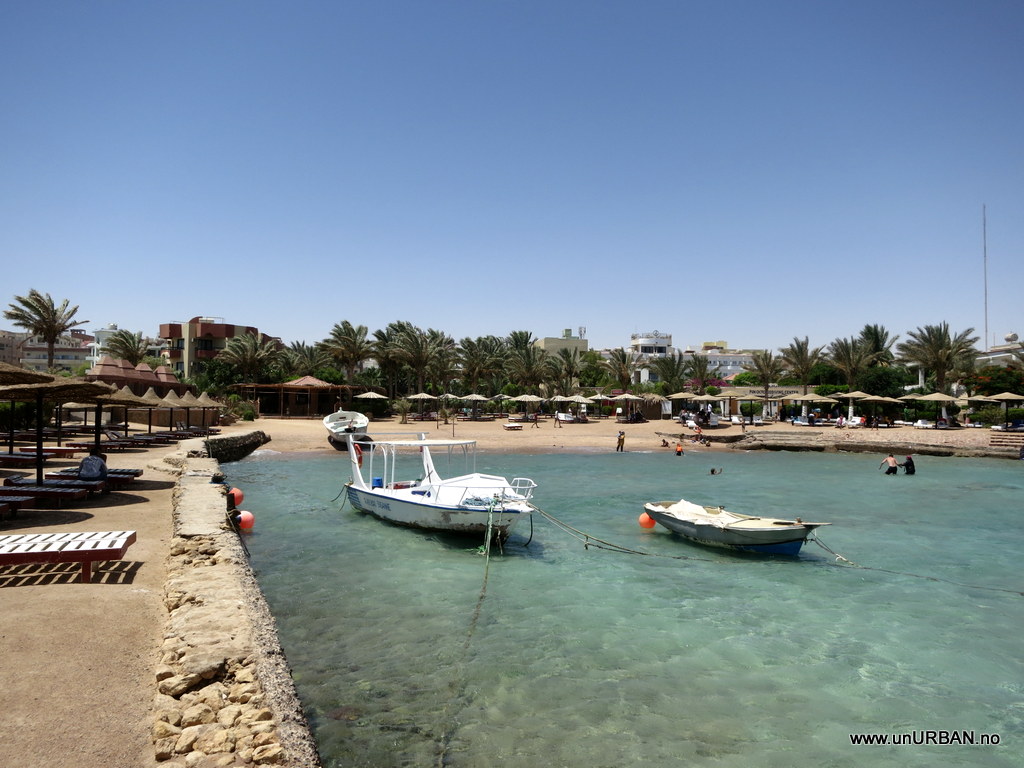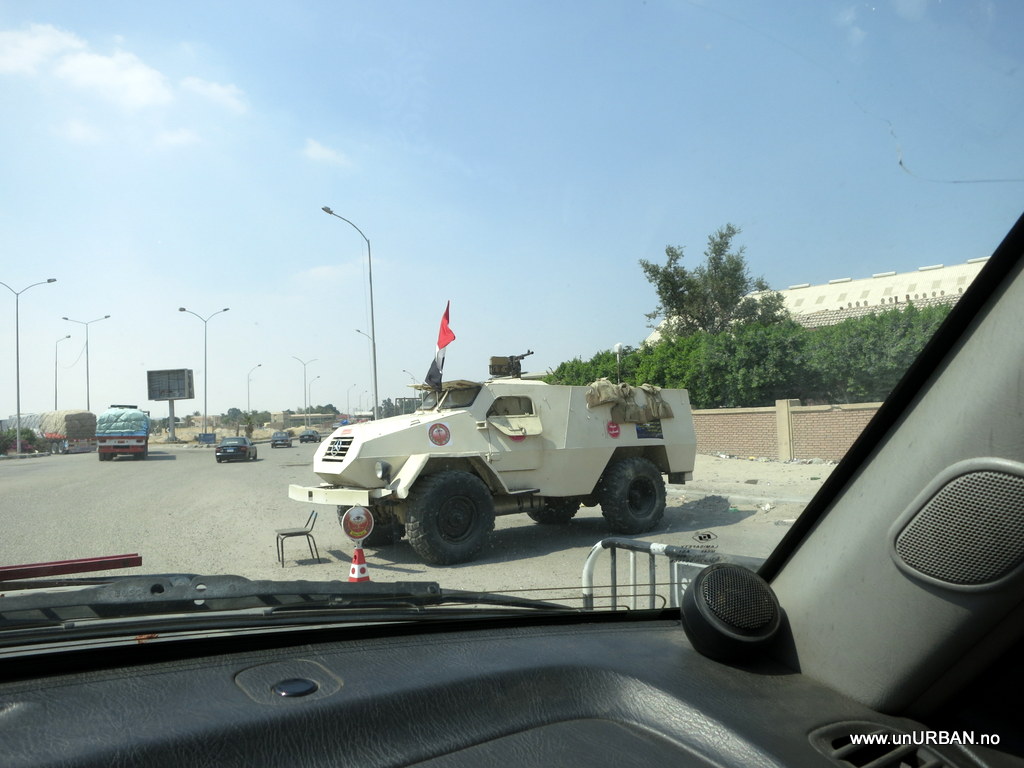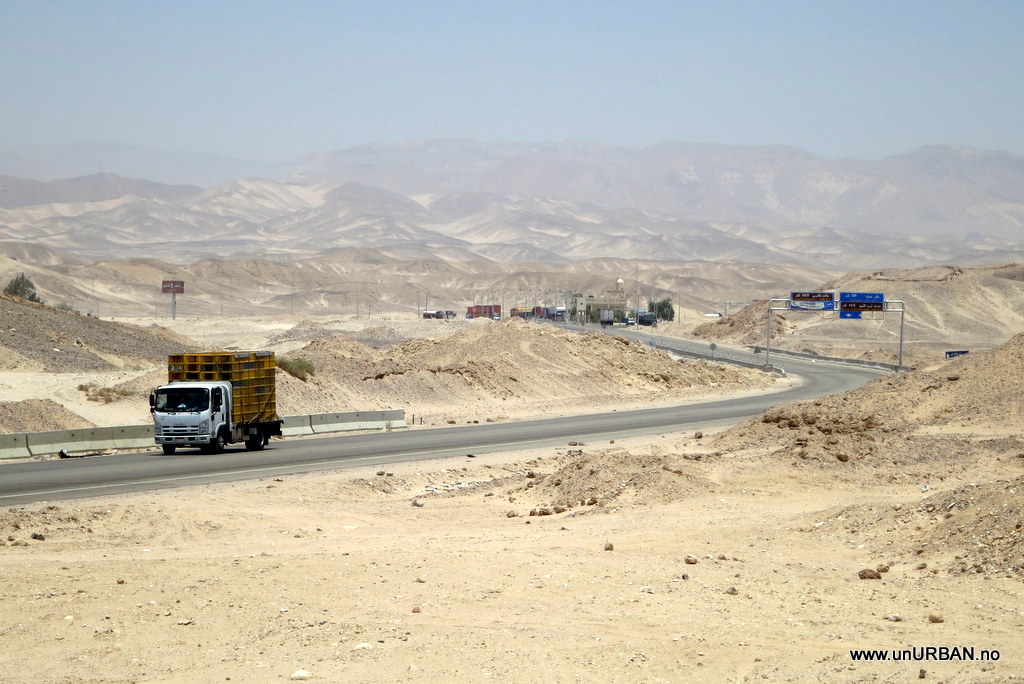Leaving Egypt
Warning: This blog post has a lot of details, might seem a bit confusing, going back and forth between things, but that it how the last two weeks in Egypt felt like for me. We followed the news closely, looked into many different shipping and border options, and one thing that looked good one day did not look so promising the next day. Then you had to look for even other possibilities.
There were quite a few things we had wanted to see in Egypt like the White and Black Desert, and of course the pyramids in Giza. The new revolution or military coup, depending on what you would like to call it, happened just after we got the Patrol through the custom in Aswan, and our focus was no longer on sightseeing but on getting out of Egypt.
After the first massive demonstrations happened in Cairowe thought it would be smart to register at the Norwegian Embassy. At the same time the Patrol had its first mechanical failure of the whole trip when we were in Hurghada on the Red Sea Coast. When we talked to the embassy, they said that the Norwegian Foreign Ministry still considered Hurghada and Sharm el-Sheikh (fly in tourist destinations) as safe. So the place we happened to be at, was a safe place to stay for some days to fix the Patrol and to see how the situation developed in Egypt.
While we were waiting in Hurghada we started to look into the different possibilities to get out of the country. Before we entered Egypt our first choice for departure was to drive across Sinai to Jordan and Israel, and the second choice was to take the ferry from Port Said to Iskenderun or Mersing in Turkey.
Sinai has had a lot of problems, and besides the charter tourist destinations there are travel warnings from all foreign ministries against travels on the Sinai peninsula. It has been a troublesome area, and since the 2011 revolution it has become even more lawless. The Bedouins that lives on Sinai feel that the Egyptian government does not do anything for them, and over the last year there have been three incidents where western civilians have been kidnapped and held hostage. Last incident was in April when a Norwegian women and an Israeli man was kidnaped after their taxi was forced off the road. The goal of the kidnappers has been to get Bedouin family members and friends out of Egyptian prisons. The hostages have been released within a few days, but it is still an experience I would prefer live without. We were unsure of how the new revolution would affect an area that already had a lot of problems, and feared it would become worse.
The only ferry service on the Mediterranean coast of Egypt that we found, is from Port Said to Turkey. We heard about nother ferry from Alexandria, but that they normally won’t accept tourist. The ferry services started after the problems in Syria developed into a civil war, to get all the commercial vehicles that used to drive through Syria, around it, and to its destinations in Egypt or further south. While we were in Hurghada, other overlanders we met along the way were in Port Said waiting for the ferry. The shipping company said they has a once a week schedule, but that is apparently quite flexible as everyone we have met that took the ferry south or north had delays. Our friends in Port Said waited 10 days before they finally got on the ferry, just to learn about even more delays. As they were allowed to board, all the trucks that came from Turkey had not disembarked yet. The truck drivers onboard the ferry did not want to disembark because they found the situation in Egypt to dangerous, they wanted to return to Turkey. Our friends told us that police and army came on board to try to solve the problem, but the ferry was stuck in port with everyone on board for two days. I am not really sure about the solution, but in the end the ferry sailed for Turkey on Tuesday the 2nd of July.
Other options we considered where to go back south to Sudan. Not a desired option because it would take us in the wrong direction, and it had taken us 14 days to cross this border on the way north. And from Sudan, our only option would be to ship the car from Port Sudan while we would have to fly to meet up with the Patrol. There is a ferry from Sudan to Jeddah in Saudi Arabia, but visas are a major problem.
Espen spent hours googeling for possibilities to get visas for Libya. It would have been to transit Libya to Tunis where there is a ferry connection to Italy. But Libya does not issue tourist visas anymore, and the local tourist companies consider the risk for tourists to be too high.
Before the revolution on the 25th of January in 2011 there used to be a ferry from Hurghada to Sharm el-Sheikh. From Sharm it would be just a short drive on Sinai up to the border to Israel. But since the previous revolution this ferry service had been canceled.
About 60 kilometers south of Hurghada is the town of Port Safaga where there are a several times a week ferry service to Duba in Saudi Arabia. There were a few challenges with this option. First, since we are not married, I will not be allowed into the country because I am a “single” woman. Our solution would be for Espen to go to Saudi Arabia by himself and drive to Jordan where I would fly in to meet him. The second challenge would be that Saudi Arabia does not issue tourist visas, but we read that they have issued a 3 days transit visa to some travelers. To get a transit visa you first have to get the visa for the country you would like to transit to, for us Jordan. To get both of these visas we would have to go to the Jordanian and Saudi embassies in Cairo. By this time most foreign ministries had a travel warning for Cairo. Cairo is a huge city so we looked into where these embassies are located in Cairo, and of course they were close to the area with all the demonstrations. Before we would go to Cairo we wanted to see if Espen would actually qualify for a transit visa. We wrote emails to the Saudi embassies in Cairo and in Oslo, but they did not replay to any of our emails. We tried to call the embassy in Cairo, and after trying 8 different phone numbers that we found for the embassy online or in guide books, I finally got through one day just to be told by a person that did not speak much English, that the embassy were closed because it was a public holiday. When I asked if it would be open the next day, the answer I got was, “Insh Allah – If God wants”. I did not call back the next day to see if God wanted it to be open. Another way to try to get these two visas would be to fly back to Norway and sort it out there. We decided we would look more into the Saudi option only if we really, really had to.
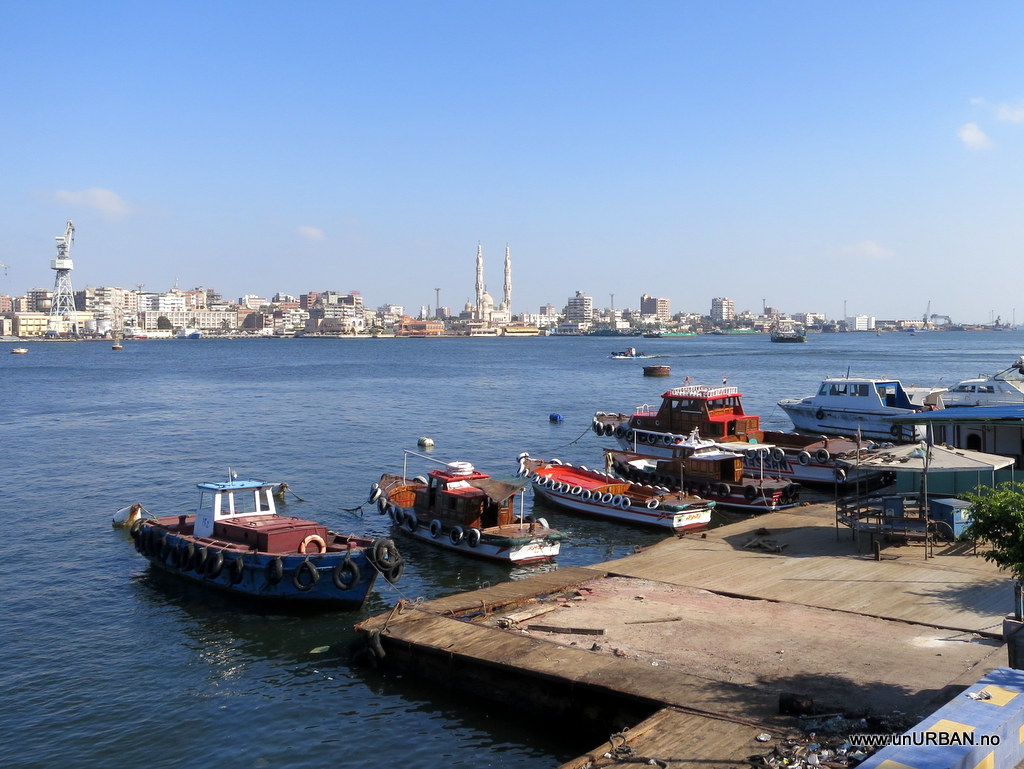
After considering options after option, we got in touch with Eslam, the fixer in Port Said, and also directly with the shipping company in Turkey, and they both said the ferry where scheduled to leave again on Saturday the 6th of July or on Sunday the 7th. Espen had the clutch on the alternator welded as a temporary solution so we could get moving again. No spare parts in stock in Egypt. To get to Port Said we had to travel in the Suez Canal area, and for this area there was also a travel warning. As we followed the situation as good as we could in the media and looking a different countrie’s travel advice, we did not hear about any incidents in this area at the time. We figured that if we drove during the day the risk of anything happening would be low.
On Wednesday morning the 3rd of July we started the drive north from Hurghada to Port Said. Leaving Hurghada, all the gas stations were closed. There was no fuel. Further up along the cost we found a gas station that had diesel, and there was no line up! It felt good to have a full tank. The drive up the Red Sea coast was nice and quiet. The scariest thing we saw was all the deserted building sites for hotel and sea side apartments. Project after project with empty half built buildings were standing there, and we could see no activity in any of them. There must have been a building boom that collapsed after the 2011 revolutions when the situation in Egypt became more unstable. Foreigners perhaps got too scared to invest in Egypt, and Egyptians probably got concerned too. It was disturbing to see these “ghost towns” on the coast. What will become of them in the future?
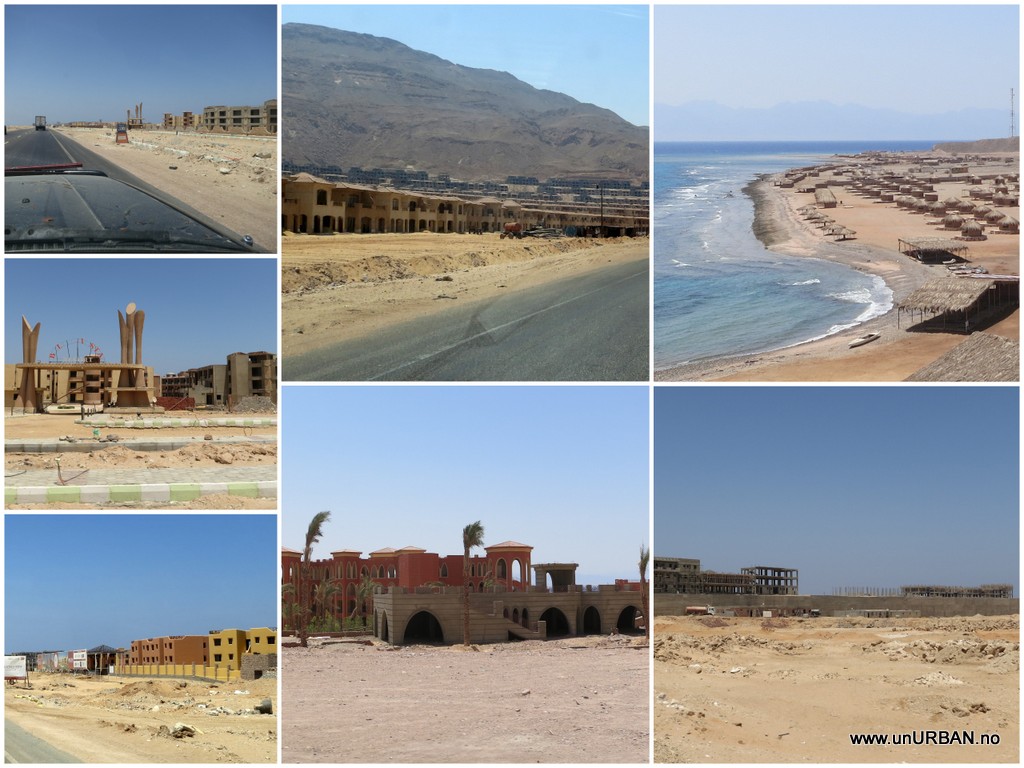
As we approached Suez we saw the first police and military check points, and we drove through several on our way to Port Said. They were all very polite, did their job, and welcomed us to Egypt.
Droving close to the canal, it is strange to drive alongside huge boats that were going the same direction as us, to Port Said at the start/end of the Suez Canal.

In Port Said we booked into a hotel with secure parking, so we could be in the city and organize shipping. In the hotel we meet again up with Gavin. We shipped together from Wadi Halfa to Aswan. On Thursday we went to the agent to buy the ferry ticket, and there we were told that the ferry was not going to leave this first Saturday as scheduled, but the Saturday on the 13th of July, a week later. We thought we better wait, and then buy the tickets a bit closer to departure. We were still hoping for the ferry where we and the car could both go onboard the same ship. But now it was time to do more research into other options for getting out of Egypt. We started to look into container shipping from Port Said to Turkey. There is no airport in Port Said so we would have to take a bus into Cairo to get a flight to Turkey if we chose to do this.

During our last days in Hurghada, Ramadan, the Muslim month of fasting, started. Staying in a tourist resort, we did not really notice the Ramadan. Three meals a day and alcohol was still being served. Port Said is not a tourist destination, and most eating places were closed during the day. Luckily there were a few that was still open, and we normally had the whole place to ourselves until after sunset, when the Muslims can eat. Our hotel did not serve alcohol, and neither did the restaurants we found. Fortunately we eventually found a hotel that did. The first afternoon we got there and asked if they had beer, Espen was taken behind the bar and to the fridge. There Espen were told to take out the beer we wanted, and he even had to serve us the beer at the bar. The waiters explained that they could serve us alcohol only after sunset because of Ramadan, but with this self-service arrangement we were all happy.
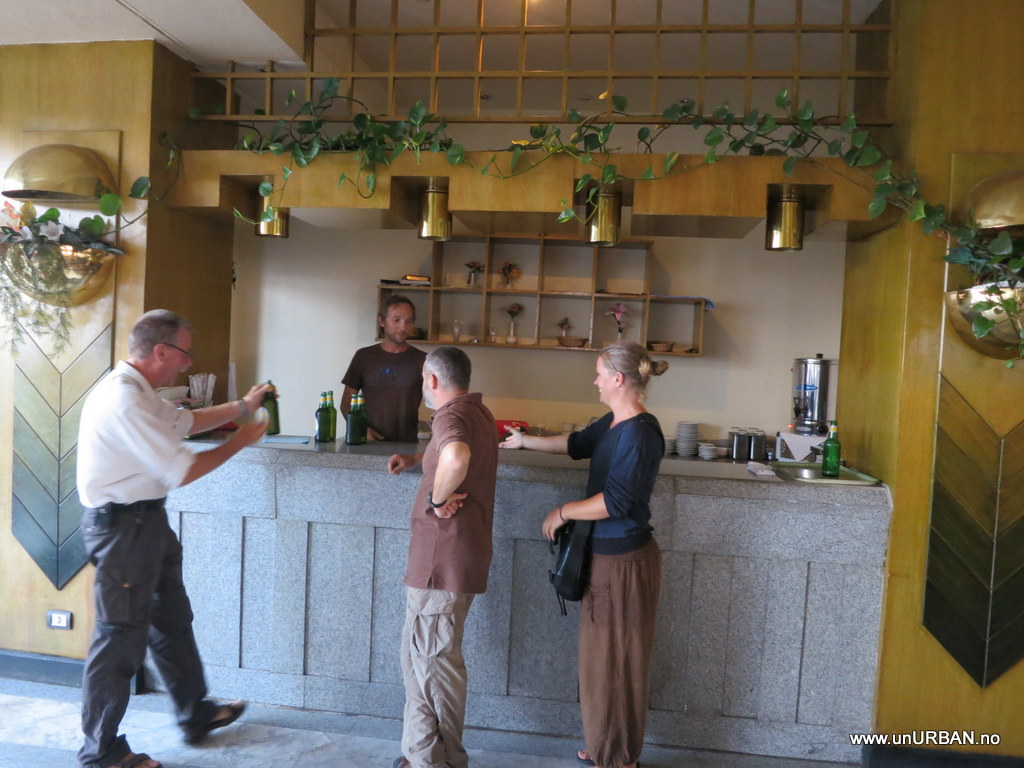
The first night in the hotel we did not sleep well because there was so much noise outside. Firecrackers went off all night, and kids were running around shouting and screaming. It did not seem like the hotel security or night guard did anything to keep things quiet at night. Because of lack of sleep I was quite annoyed and complained about the firecrackers when I was in the reception the next morning. I was hoping they would say that it would not happen again, but all the receptionists smiled and laughed, and said, “It is Ramadan”! I guess the fire crackers are a way of celebrating Ramadan for the children (and grown ups..). Since we had to wait to figure out about our shipping, and because there weren’t really that many other hotels in town with good parking, it was just to accept this as an Egyptian tradition.
Except Gavin and us, all the other guests in the hotel were Egyptians. After observing for a few days it seemed to us that people and families had taken days, or the whole Ramadan off, and had a holiday. Since they could not eat or drink from sunrise to sunset, many people slept the whole day (then it was so nice and quiet in the hotel) and stayed up all night eating and enjoying themselves. Children were out running around and playing with the other children, and of course lighting firecrackers, until at least 4 o’clock at night. Afterwards I realized we should have done the same, but then offices still worked like normal and we were looking for a way out of Egypt.
On Monday the 15th of July we received an email from SISA shipping in Turkey, telling us that the ferry between Port Said and Turkey had been cancelled. The shipping company had been told by the Turkish government that they were not allowed to sail to Egypt anymore. They decided to sail from Turkey through the Suez Canal, directly to Duba in Saudi Arabia.
What to do, what to do, what to do??? I do not know how many times we asked our self this question these days.
By now we had the company of a German overland couple too, and we were now three overland vehicles parked outside the hotel. On top of this, ours and Gavin’s visas and car papers would run out on the 18th of June. To extend our personal visa would not be a problem, but to extend the car papers is not so easy. It can be done, but takes two days and cost a bit of money. We were not really sure about the process, but it would involve getting a new Egyptian driving permit, new license plates for the car, and we did not know what they would do with the Carnet de Passage. We would probably need the help of a fixer to find all these places in Port Said. There would be bribes to be paid, and another round with the Egyptian bureaucracy was not really tempting.
We followed the news from Sinai closely, as we did with all news from Egypt, and there were a few incidents and attacks on Sinai in this period. But from what we could see and understand, they all happened in the north. There are four larger roads across/around Sinai. The one in the North to Gaza is where all the problems and attacks were, and this area is closed for foreigners. Next one down, the road from Suez to Taba, we also heard was closed to foreigners. We would be turned around at a checkpoint if we tried it. Third one down is going across just north of the St. Catharine Monastery. This is a tourist attraction, but the road is regarded safe only from the east and to the monastery. Coming on the road from the west, it would probably be closed to tourists. Last option is the road that goes south along the Red Sea Cost to Sharm el-Sheikh, and up to Taba and the border to Israel. We did not find out if this road were still open for tourists, and the only way to find out would be to drive there and see if we would be let through the checkpoints. We figured that three cars driving together would be good for safety, and we all decided that we would not drive at night or in the early morning on the Sinai.
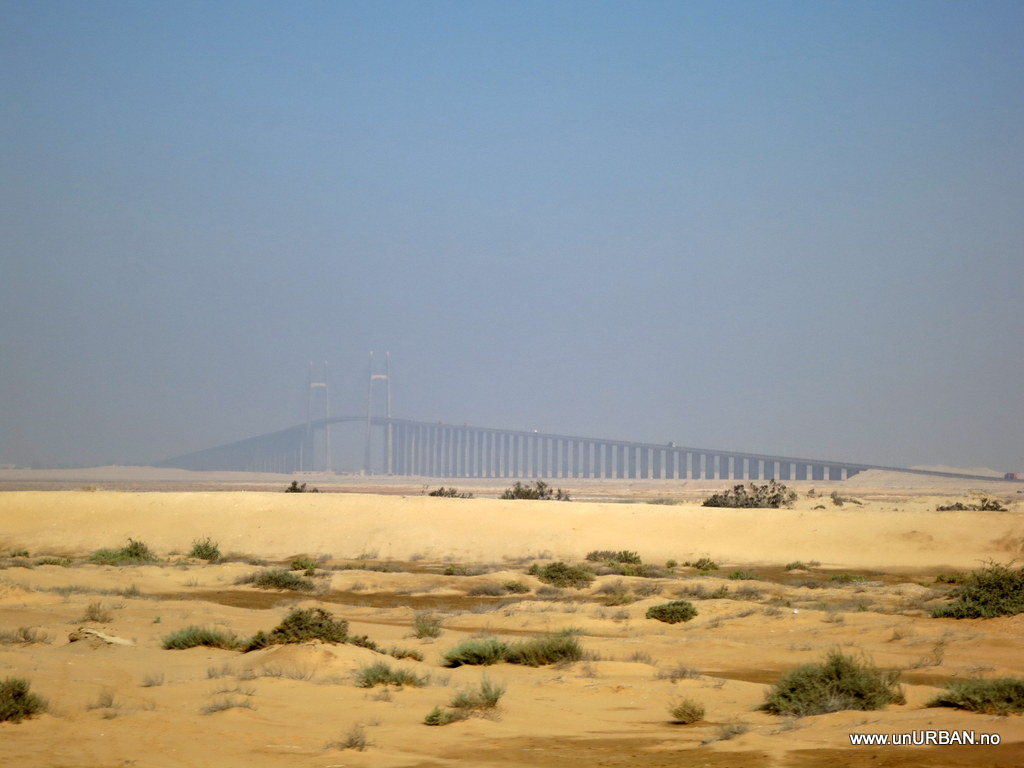
With all tanks full of diesel (we filled up in Port Said), we started from Port Said at 6.30 in the morning. We drove the Egyptian-Japanese Friendship Bridge across the Suez Canal, and we were on Sinai. In the military checkpoints they looked at our papers, asked us where we were going, welcomed us to Egypt, and then let us though. At the checkpoint where you can turn east to the St. Catharine Monastery, or south the way we wanted, we all had to have our passports registered. This time we did not get them back. One policeman was holding on to them and got into a police truck. When we asked what was going on, he just told us to follow them. They did not speak much English and it was difficult to understand what they wanted us to do. But we guessed we needed a police escort for this part of the road. The escort was with us for about 60 km down to Al Tor, as this is the stretch of road that goes more inland on the road around Sinai. In El Tor we got our passports back, and we could continue on our own again. All the local cars, trucks, and busses, were driving without escorts, so they probably just had some extra safety precautions with tourists.
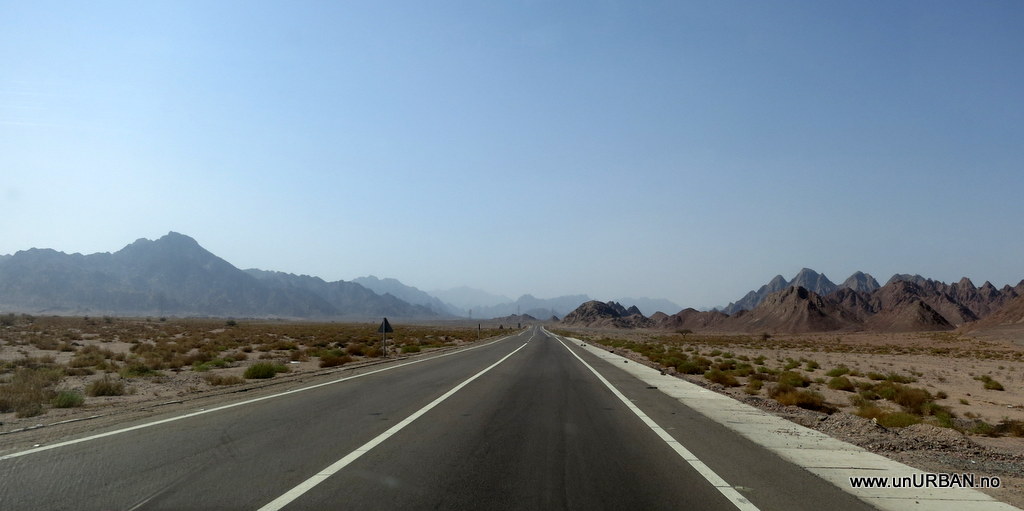
If the situation on Sinai would have been different, this would have been a great area to spend more time in. It has a beautiful coastline and the dessert mountain area we drove through looked amazing. Next time….
After 610 kilometers and a long day’s drive we stopped in Dahab for the night. Next morning, the last day with a valid visa and car papers, the three overland vehicles were back on the road again. It was an easy drive up to the border, and we were there in less than two hours. Now it was just to get all the paperwork done and get out of Egypt.
It felt really good to get to the border and to be able to leave Egypt, but it was kind of a mixed feeling. There were so many things we would have liked to see and do. We did not have any really bad experiences in Egypt, but nobody knew how the situation would develop. This combined with few good options for leaving the country overland, worried me. I knew that we would always get out of Egypt if we really had to, and if the situation had gone really bad it would have meant to get on a plane and leave the Patrol behind. Not really tempting, but we would get out and that would be most important.
Anyway this is now all history for us, but the Egyptians are still there trying to figure out their future. What we saw of Egypt was really nice and the people we meet were very friendly. I hope they can agree on their future, work things out, and get on with the process of getting their country going again.
Malin

